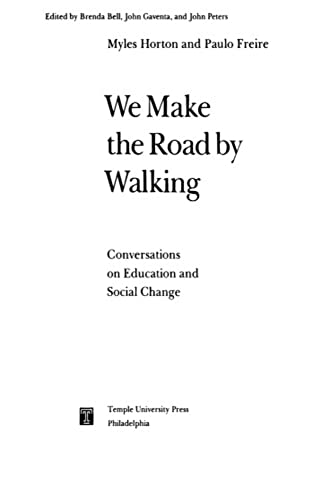Alex Fink (e)k Paulo Freire(r)en We Make the Road by Walking liburuaren kritika egin du
Beautiful dialogue between two heroes of experiential education and critical pedagogy
5 izar
This is at least my second reading of this book and I still love it. I see new things in it each time. This time, I see how much Paulo Freire prompted Myles Horton with questions about his work. According to the introduction, Freire wanted to introduce Horton to thinkers in Latin America. And Horton wanted to do the same with Freire, but either the editors were siding with Freire's prompting or he did more to ask the questions, because I do feel like Horton is a bit more primary in terms of representation in this dialogue. As always before, I find Horton's starting every response with a story and sticking to stories is so compelling and so clear that he lived what he practiced. I don't know that a reader walks away getting any clear sense of what Freire or Horton were up to in specifics from this book, …
This is at least my second reading of this book and I still love it. I see new things in it each time. This time, I see how much Paulo Freire prompted Myles Horton with questions about his work. According to the introduction, Freire wanted to introduce Horton to thinkers in Latin America. And Horton wanted to do the same with Freire, but either the editors were siding with Freire's prompting or he did more to ask the questions, because I do feel like Horton is a bit more primary in terms of representation in this dialogue. As always before, I find Horton's starting every response with a story and sticking to stories is so compelling and so clear that he lived what he practiced. I don't know that a reader walks away getting any clear sense of what Freire or Horton were up to in specifics from this book, but I do think they get a sense of some of the overall influences and important ideas that the two held more or less in common when it came to popular education. Horton is also very careful to highlight the influences and work of Bernice Robinson, Esau Jenkins, Septima Clark, and others that were involved at Highlander and in Highlander's work. It's a quick read - and maybe would make a nice introduction to the two authors. I still love The Long Haul, written about the work of Highlander and a sort of biography of Myles Horton. It leans on his signature storytelling style and gets much more into the specifics of the kinds of work and practices they were doing and using at Highlander.

